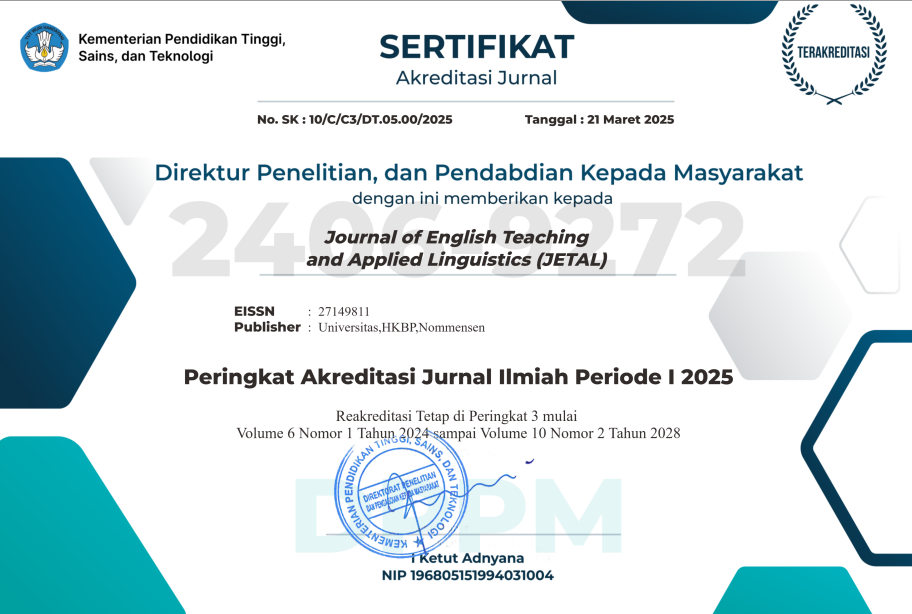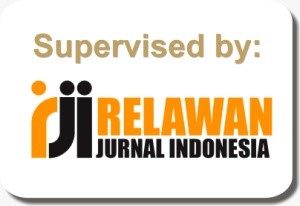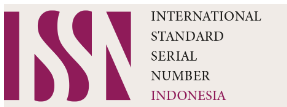The Effect of Minecraft Video Game on Students’ English Vocabulary Mastery
Abstract
Vocabulary mastery is important to acquire a language. Learning vocabulary has several barriers that slow down the progress. Minecraft application is used as a new method of learning English vocabulary. The goal of this research was to investigate whether there is a significance positive effect after used Minecraft application on students’ vocabulary mastery for 5th grade elementary students. A quasi-experimental method was used in this research with 63 students of SDN Poris Plawad 1 Tangerang, which separated into an experimental group (n=31) and a control group (n=32). The results revealed that Minecraft has better score result than the conventional method. Besides, the students’ behavior also resulted to be better than the conventional method. The survey also revealed that the students agreed that Minecraft was making the learning easier, less boring, less stressful and happier. However, the results could not be generalized due to the small sample taken in this research.
References
Aghlara, L., & Tamjid, N. H. (2011). The effect of digital games on Iranian children’s vocabulary retention in foreign language acquisition. Procedia - Social and Behavioral Sciences, 29(2010), 552–560. https://doi.org/10.1016/j.sbspro.2011.11.275
Alavi, G., & Pourhosen, G. A. (2019). The Effectiveness of Games in Enhancing Vocabulary Learning among Iranian Third Grade High School Students. 16.
Alqahtani, M. (2015). The importance of vocabulary in language learning and how to be taught. International Journal of Teaching and Education, 3(3), 21–34.
Alshaiji, O. A. (2015). Video Games Promote Saudi Children’S English Vocabulary Retention. Education, 136(2), 123–132. http://search.ebscohost.com/login.aspx?direct=true&db=ehh&AN=111972214&site=ehost-live
Andreani, W., & Ying, Y. (2019). “PowPow” interactive game in supporting English vocabulary learning for elementary students. Procedia Computer Science, 157, 473–478. https://doi.org/10.1016/j.procs.2019.09.005
Arikunto, S. (2006). Prosedur Penelitian Suatu Pendekatan praktik. Rineka Cipta.
Arjoranta, J. (2019). How to Define Games and Why We Need to. The Computer Games Journal, 8, 109–120. https://doi.org/s40869-019-00080-6
Ary, D., Jacobs, L. C., Sorensen, C., & Razavieh, A. (2010). Introduction to Research in Education (8th ed.). Wadsworth - Cengage Learning.
Aslanabadi, H., & Rasouli, G. (2013). The effect of games on improvement of Iranian EFL vocabulary knowledge in kindergartens. International Review of Social Sciences and Humanities, 6(1), 86–195.
Bajohb Jafarian, R., & Shoari, E. (2017). The Effect Of Games On Iranian Young Efl Learners’ Vocabulary Learning. European Journal of English Language and Literature Studies, 5(5), 12–24.
Bakhsh, S. A. (2016). Using Games as a Tool in Teaching Vocabulary to Young Learners. English Language Teaching, 9(7), 120. https://doi.org/10.5539/elt.v9n7p120
Begg, M., Macleod, H. A., & Dewhurst, D. (2005). Game-Informed learning: applying computer game processes to the higher education. Innovate: Journal of Online Education, 1(6).
Brewster, J., Ellis, G., & Girard, D. (2002). The primary English teacher’s guide (2nd ed.). Penguin Books.
Brown. (2003). Language Assesment Principles and Classroom Practice (3rd ed.). Pearson Longman.
Brysbaert, M., Stevens, M., Mandera, P., & Keuleers, E. (2016). How many words do we know? Practical estimates of vocabulary size dependent on word definition, the degree of language input and the participant’s age. Frontiers in Psychology, 7(JUL), 1–11. https://doi.org/10.3389/fpsyg.2016.01116
Chen, H. J. H., Hsu, H. L., Chen, Z. H., & Todd, A. G. (2020). Investigating the Impact of Integrating Vocabulary Exercises Into an Adventure Video Game on Second Vocabulary Learning. Journal of Educational Computing Research. https://doi.org/10.1177/0735633120963750
Chien, Y.-C. (2019). The Language of Massively Multiplayer Online Gamers: A Study of Vocabulary in Minecraft Gameplay. The Electronic Journal for English as a Second Language, 23(3).
Coady, J. (Ohio U., & Huckin, T. (University of U. (1998). Book Review : Second Language Vocabulary Acquisition: a Rationale for Pedagogy. RELC Journal, 29(1), 148–151. https://doi.org/10.1177/003368829802900109
Damayanti, E. (2019). Makalah statistika induktif Uji paired sample t test, uji independent sample t test, Dan uji wilcoxon.
Davis, K., Boss, J. A., & Meas, P. (2018). Playing in the Virtual Sandbox: Students’ Collaborative Practices in Minecraft. International Journal of Game-Based Learning, 8(3), 56–76. https://doi.org/doi:10.4018/ijgbl.2018070104
Derakhshan, A., & Davoodi Khatir, E. (2015). The Effects of Using Games on English Vocabulary Learning. Journal of Applied Linguistics and Language Research, 2(3), 39–47. www.jallr.ir
Dickinson, P. (2018). In Kahoots : Learning Vocabulary with Learner-created Quizzes. January, 2015.
Ebrahimzadeh, M., & Alavi, S. (2017). The Effect Of Digital Video Games On Efl Students’ Language Learning Motivation. Teaching English with Technology, 17(2), 87–112.
Effendy, I. (2016). Pengaruh Pemberian Pre-Test dan Post-Test Terhadap Hasil Belajar Mata Diklat HDW.DEV.100.2.a pada Siswa SMK Negeri 2 Lubuk Basung. Jurnal Ilmiah Pendidikan, 1(2), 81–88.
Endacott, R., Benbenishty, J., & Seha, M. (2010). Preparing research instruments for use with different cultures. Intensive and Critical Care Nursing, 26(2), 64–68. https://doi.org/https://doi.org/10.1016/j.iccn.2009.12.005
Esposito, N. (2005). A Short and Simple Definition of What a Videogame Is. https://www.utc.fr/~nesposit/publications/esposito2005definition.pdf
Fajriah, I. (2013). Peningkatan Penguasaan Kosakata Bahasa Inggris Melalui Penggunaan Media Kartu Gambar Pada Siswa Kelas II SD Muhammadiyah Purwodiningratan 2 Yogyakarta. Universitas Negeri Yogyakarta.
Fraenkel, J. R. (2012). How To Design and Evaluate Research in Education (8th ed.). McGraw-Hill.
Fraenkel, J. R., & Wallen, N. E. (2012). How to Design and Evaluatte Research in Education. McGraw-Hill.
Gani, I., & Siti, A. (2015). Alat Analisis Data: Aplikasi Statistik untuk Penelitian Bidang Ekonomi dan Sosial. Andi Publisher.
Gee, J. P. (2003). What Video Games Have to Teach Us About Learning and Literacy. Technology Pedagogy and Education, 1(1). https://doi.org/10.1145/950566.950595
Gelderen, E. van. (2006). A history of the english language. John Benjamins Publishing Co.
Gyllenstig Serraro, F. (2016). Minecraft som pedagogiskt verktyg. Natur & Kultur.
Hamidah. (2020). The Effect Of Busuu Application Toward Students’ English Skills And Learning Interest In English At First Grade Of SMAN 10 Kota Tangerang In Academic Year 2020/202. Universitas Islam Syekh Yusuf Tangerang.
Irianto, A. (2007). Statistik Konsep Dasar dan Aplikasinya. Kencana.
Jambor, P. Z. (2007). English Language Imperialism: Points of View. Journal of English as an International Language, 2, 103–123.
Joyce, P. (2015). L2 vocabulary learning and testing: the use of L1 translation versus L2 definition. The Language Learning Journal, 46(3), 217–227. https://doi.org/10.1080/09571736.2015.1028088: 10.1080/09571736.2015.1028088
Kominfo. (2017). Survey Penggunaan TIK Serta Implikasinya terhadap Aspek Sosial Budaya Masyarakat. Puslitbangaptikaipk Kominfo.
Kurniawan, A. ., Prastowo, P., Darussalim, & Harahap, L. P. (2017). Antusiasme Belajar Siswa Kelas X Ilmu Pengetahuan Bahasa Pada Lintas Minat Biologi Di MAN 2 Model Medan. Jurnal Pelita Pendidikan. JURNAL PELITA PENDIDIKAN, 5(1), 108–117.
Kusuma, F. W., & Aisyah, M. N. (2012). Implementasi Model Pembelajaran Kooperatif Tipe Think Pair Share untuk Meningkatkan Aktivitas Belajar Akuntansi Siswa Kelas XI IPS 1 SMA Negeri 2 Wonosari. Jurnal Pendidikan Akuntansi Indonesia, 10(2), 43–63.
Metacritic. (2021). Minecraft for PC Reviews. Metacritic.
Minecraft Fandom. (2020). Minecraft. Minecraft Fandom.
Muhridah, Y. (2019). Peningkatan Penguasaan Vocabulary Materi Transportation Melalui Media Mini Book Pada Siswa Kelas V B MI Al-Hidayah Sawotratap Gedangan Sidoarjo. Universitas Islam Negeri Sunan Ampel Surabaya. Universitas Islam Negeri Sunan Ampel Surabaya.
Nation, I. S. P. (2001). Learning vocabulary in another language. Cambridge University Press.
Newman, J. (2004). Video Games. Routledge.
Nikoopour, J., & Kazemi, A. (2014). Vocabulary Learning through Digitized & Non-digitized Flashcards Delivery. Procedia - Social and Behavioral Sciences, 98, 1366–1373. https://doi.org/10.1016/j.sbspro.2014.03.554
Nunik, R. (2012). Difficulties In English Vocabulary Learning Experienced By The Eighth Grade Students Of SMP Negeri I Borobudur In The Academic Year Of.
Oktavianur, A. (2016). Pengaruh Penerapan Pendekatan Realistic Mathematics Education (Rme) Terhadap Kemampuan Komunikasi Matematika Siswa SMPN 21 Pekanbaru. Universitas Islam Negeri Sultan Syarif Kasim Riau.
Pandey, A. (2013). Using Mother Tongues as Building Blocks in Childhood Education. Childhood Education, 90(1), 61–67. https://doi.org/10.1080/00094056.2014.872517
Pérez, M. E. de M., Duque, A. P. G., & García, L. C. F. (2018). Game-Based Learning: Increasing the Logical-Mathematical, Naturalistic, and Linguistic Learning Levels of Primary School Students. Journal Of New Approaches In Educational Research, 7(1), 31–39. https://doi.org/10.7821/naer.2018.1.248
Perwitasari, N. (2014). Peningkatan Penguasaan Kosakata Bahasa Inggris Materi Family Melalui Lagu Pada Siswa Kelas V SDN Piyaman II Wonosari. Universitas Negeri Yogyakarta.
Putri, R. W. W. (2013). Improving vocabulary mastery of VII grade students in SMP 2 Grabag through gams in the academic year of 2012/2013. Universitas Negeri Yogyakarta.
Ratnasari, S. (2017). Pengaruh Model Pembelajaran Kooperatif Tipe Numbered Heads Together (Nht) Terhadap Peningkatan Keterampilan Sosial Dan Pemahaman Konsep Siswa Dalam Pembelajaran Ipa. UNY.
Saddam, I. M. (2018). The Effectiveness Of Mnemonics Device In Teaching Students’ Vocabulary At Second Grade Of MTsN 2 Tulungagung. IAIN Tulungagung.
Šajben, J., Klimova, N., & Lovászová, G. (2021). Minecraft: Education Edition as a Game-Based Learning in Slovakia. IEEE Global Engineering Education Conference. https://doi.org/10.1109/EDUCON46332.2021.9453953
Salehi, H. (2017). Effects of using instructional video games on teaching English vocabulary to Iranian pre-intermediate EFL learners. International Journal of Learning and Change, 9(2), 111–130. https://doi.org/10.1504/IJLC.2017.084609
Simgih, A. (2020). wComparing The Effect Of Advance Organizers And Think-Pair-Share On Efl Learners’ Listening Comprehension At Eleventh Grade Of SMAN 3 Kabupaten Tangerang In Academic Year. Universitas Islam Syekh Yusuf Tangerang.
Smolčec, M. (2014). Using Minecraft for Learning English * * * On the Internet * * *. The Electronic Journal for English as a Second Language, 18(2), 1–15. http://tesl-ej.org/pdf/ej70/int.pdf
Sorayaie-Azar, A. (2012). The effect of games on EFL learners’ vocabulary learning strategies. International Journal of Applied and Basic Sciences, 1(2), 252–256. https://doi.org/10.17142/ijbas2012.1.2.10
Stahl, S. A. (2005). Four problems with teaching word meanings: (and what to do to make vocabulary an integral part of instruction). In Teaching and Learning Vocabulary: Bringing Research to Practice. https://doi.org/10.4324/9781410612922
Sudijono, A. (2018). Pengantar Statistik Pendidikan. Rajawali Grafindo Persada.
Sugiyono. (2011). Metode Penelitian Pendidikan. Alfabeta.
Sundelin, M. (2019). Games in Second-Language Teaching: Using Minecraft to Facilitate the Development of Reading, Listening, Writing and Speaking Skills in English. Mid Sweden University.
Suryosubroto, B. (2002). Proses Belajar Mengajar di Sekolah. PT. Rineka Cipta.
Syamsiarna, N. (2014). Peningkatan Penguasaan Kosakata Siswa Melalui Pembelajaran Bahasa Berbantuan Komputer. Jurnal Teknologi Pendidikan, 16(3).
Uusi-Mäkelä, M. (2015). Learning English in Minecraft: A Case Study on Language Compentences and Classroom Practice. School of Language, Translation and Literary Studies, June. http://tampub.uta.fi/bitstream/handle/10024/97626/GRADU-1435645627.pdf?sequence=1&isAllowed=y
Wahyuni, D., Fauzia, A., & Syafei, R. (2018). The Use Of Action Bingo Game In Teaching Vocabulary To Elementary School. Journal of English Language Teaching, 5(1).
Warren, T. (2020). Minecraft still incredibly popular as sales top 200 million and 126 million play monthly. The Verge.
Widiyanto, J. (2010). SPSS For Windows: Untuk Analisis Data Statistik & Penelitian. BP-FKIP UMS.
York, J. (2016). Minecraft and Language learning. October 2014, 179–196.
Yulianti, L. (2005). Pengembangan Program Pembelajaran Berorientasi Standar Proses Pendidikan. Prenada Media Group.
Zimmerman, E. (2004). Narrative, Interactivity, Play, and Games: Four naughty concepts in need of discipline. First Person: New Media as Story, Performance, and Game.
Authors retain copyright and grant the journal right of first publication with the work simultaneously licensed under a Creative Commons Attribution-ShareAlike 4.0 International License (CC BY-SA 4.0) that allows others to share the work with an acknowledgment of the work's authorship and initial publication in this journal.
Authors are able to enter into separate, additional contractual arrangements for the non-exclusive distribution of the journal's published version of the work (e.g., post it to an institutional repository or publish it in a book), with an acknowledgment of its initial publication in this journal.
Authors are permitted and encouraged to post their work online (e.g., in institutional repositories or on their website) prior to and during the submission process, as it can lead to productive exchanges, as well as earlier and greater citation of published work (See The Effect of Open Access).






